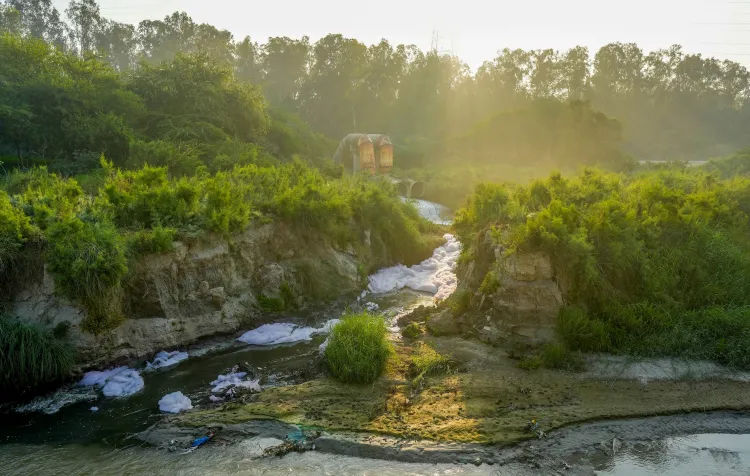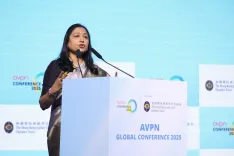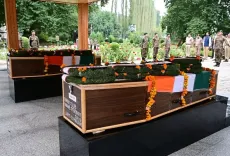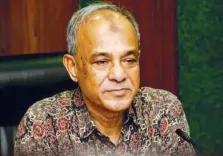Has the NGT Addressed the Issue of 'Illegal' Bleaching Units in Haryana’s Panipat?

Synopsis
Key Takeaways
- NGT's proactive action against illegal operations is crucial for environmental protection.
- Bleaching units are major contributors to land and water pollution.
- Awareness of **HSPCB's** findings is essential for community health.
- Compliance with environmental laws is necessary to safeguard ecosystems.
- Community members must advocate for regulatory enforcement.
New Delhi, May 25 (NationPress) The National Green Tribunal (NGT) has initiated suo motu action based on a media report that reveals the pollution resulting from the 'illegal' bleaching units in Haryana’s Panipat.
A bench led by Chairperson Justice Prakash Shrivastava recorded an original application suo motu (on its own initiative) in response to a news article titled 'Panipat’s illegal bleaching units pollute land, waterways.'
In reference to the news piece, the Bench, which also includes judicial member Arun Kumar Tyagi and expert member Dr. Afroz Ahmad, highlighted that these bleaching units are functioning without the necessary permissions or safety measures, releasing toxic wastewater, which contains acids and chlorine, into the soil and adjacent drains that eventually flow into the Yamuna River.
The article pointed out that the Haryana State Pollution Control Board (HSPCB) has recognized these units as significant sources of water pollution.
According to HSPCB findings, 32 illegal bleaching units have been operating in villages such as Naultha, Dahar, Binjhol, Balana, Paldi, Kurar, Didwadi, Mandi, Israna, and Naara. The NGT noted that these establishments lack Consent to Establish (CTE), Consent to Operate (CTO), and do not possess effluent treatment systems.
The environmental issues raised in the article invoke the regulations set forth in The Environment Protection Act, 1986 and the Water (Prevention and Control of Pollution) Act, 1974.
The NGT, acknowledging its authority to act suo motu as recognized by the Supreme Court, included HSPCB, Central Pollution Control Board (CPCB), Haryana Water Resources Conservation, Regulation and Management Authority, and the District Commissioner of Panipat as parties to the case.
The tribunal ordered that notices be sent to the respondents, requiring their responses by affidavit at least one week before the next hearing date, which is scheduled for August 29. If any respondent authority files a reply directly, they must be present to assist the tribunal, as clarified by the NGT order.






